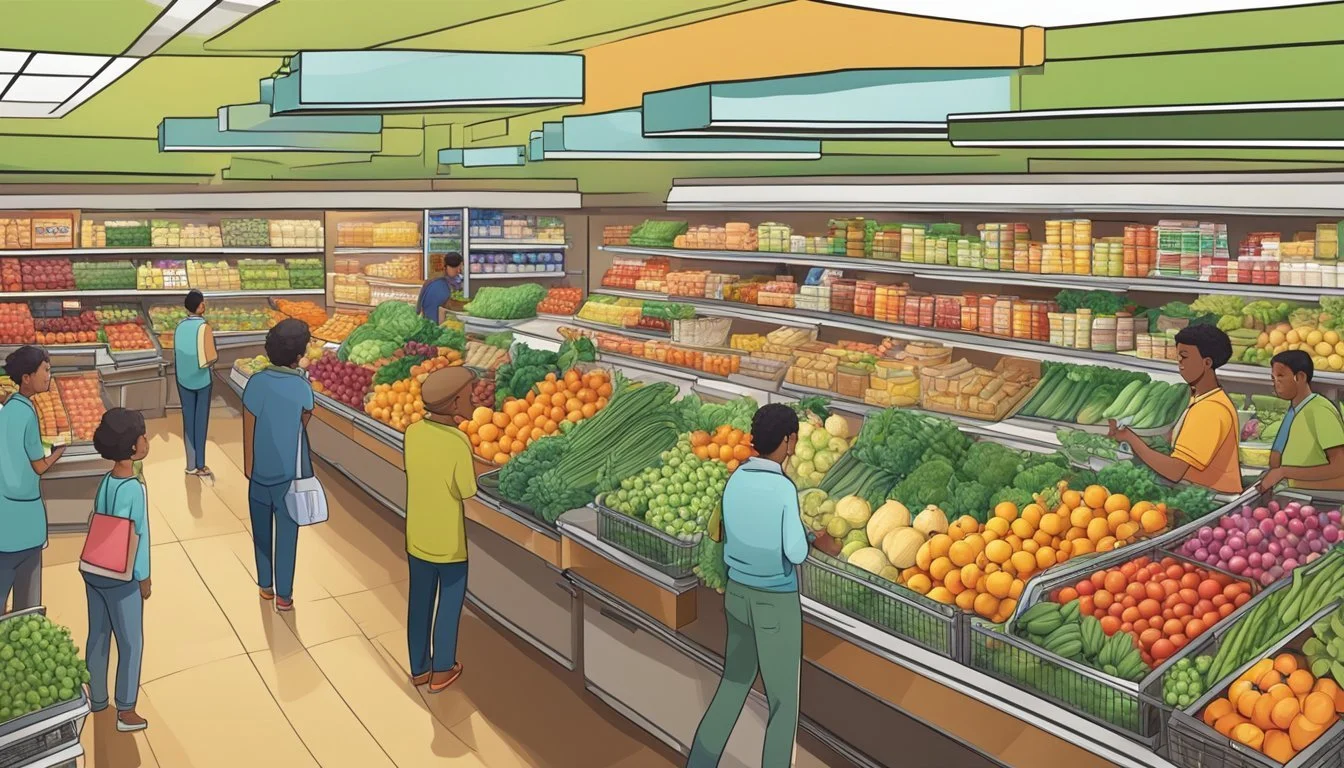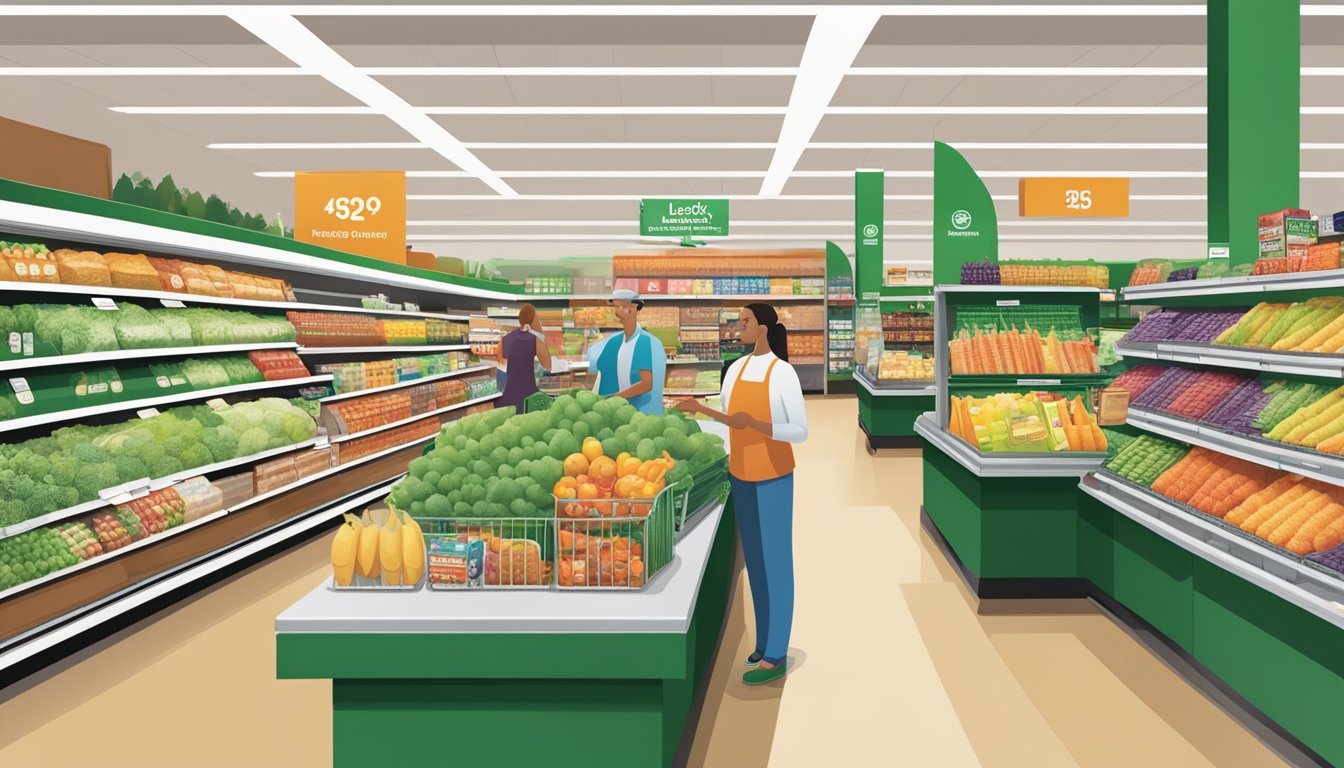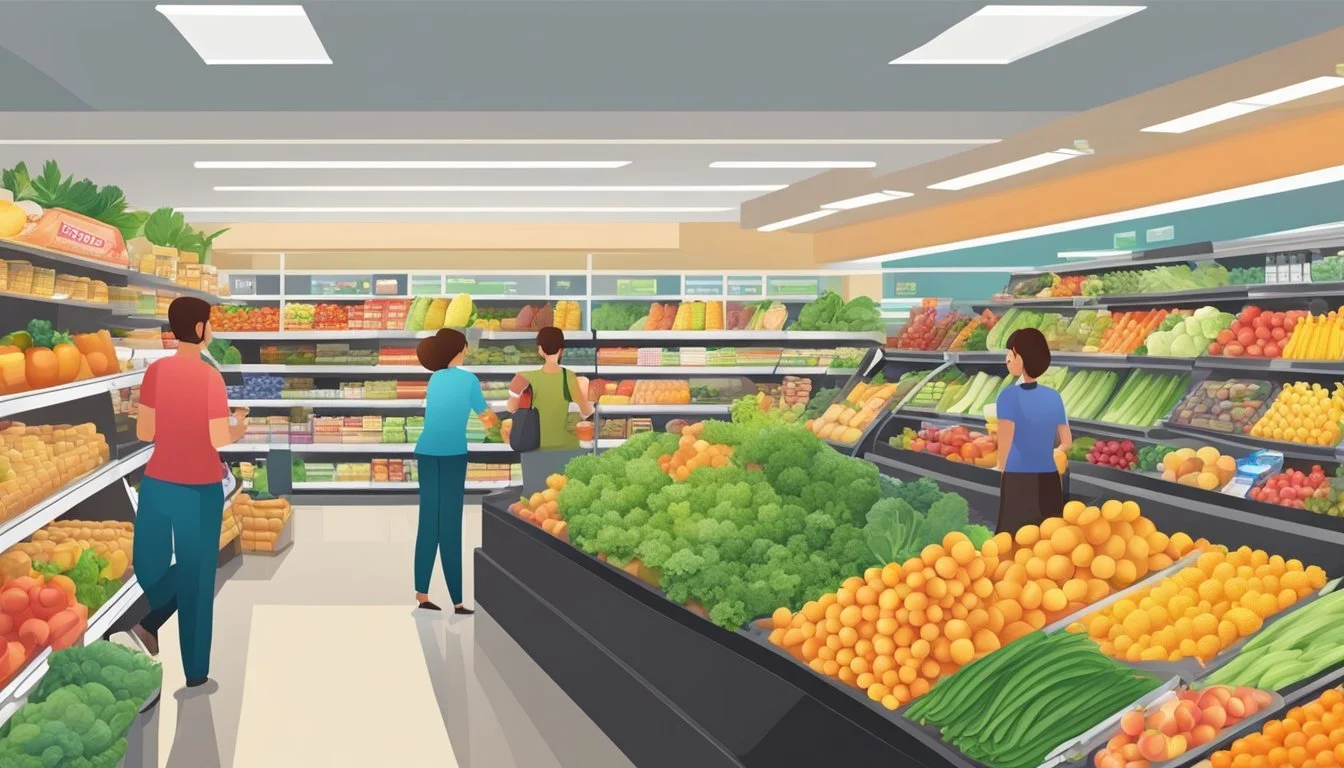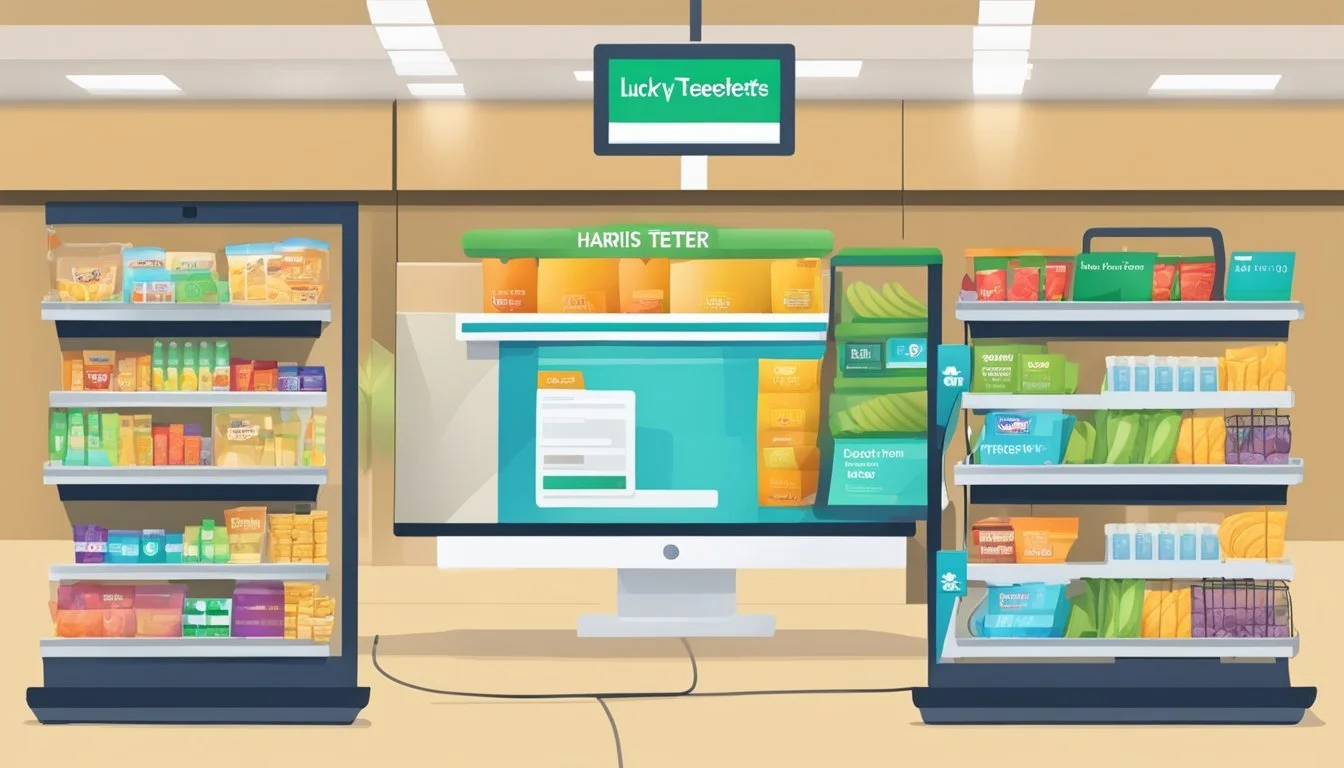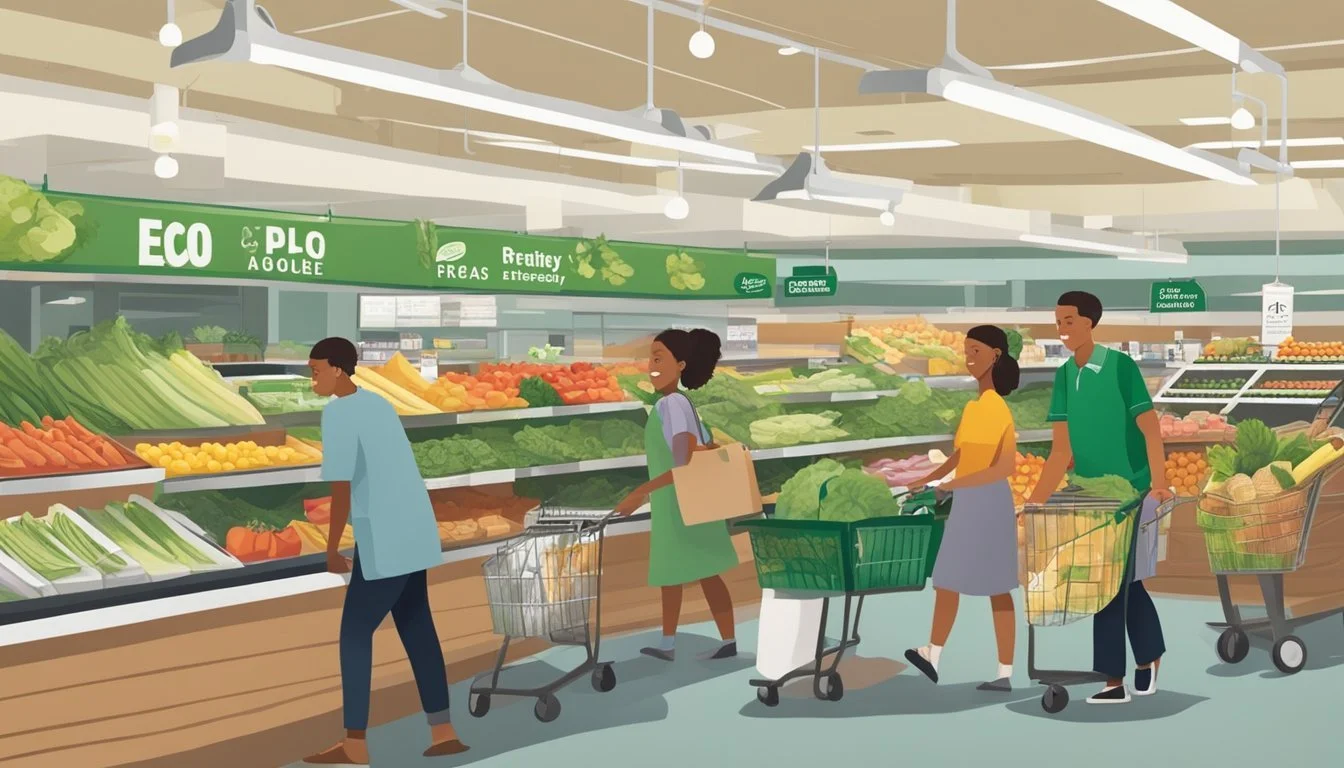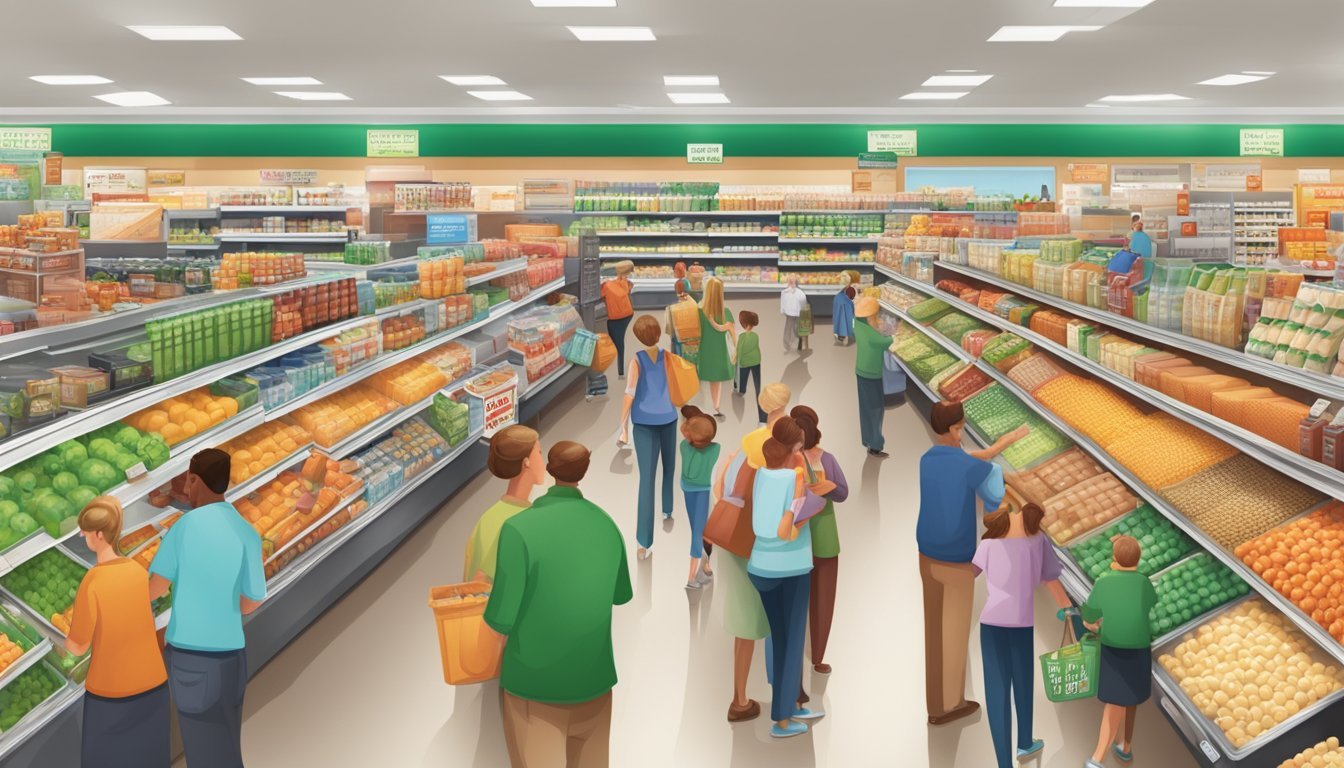Harris Teeter vs Lucky Supermarkets
A Comprehensive Comparison of Price, Quality, and Selection
Harris Teeter and Lucky Supermarkets are two well-known grocery chains that cater to different regions of the United States. Harris Teeter, primarily serving the Southeast, has built a reputation for quality products and customer service. Lucky Supermarkets, on the other hand, operates mainly in Northern California and offers a more budget-friendly shopping experience.
When comparing these two supermarkets, several factors come into play. Harris Teeter generally provides a more upscale shopping environment with a wider selection of specialty and organic products, while Lucky Supermarkets focuses on competitive pricing and everyday essentials. Both stores aim to meet the diverse needs of their respective customer bases, but their approaches differ significantly.
The choice between Harris Teeter and Lucky Supermarkets often depends on individual preferences and priorities. Shoppers who value a premium experience and are willing to pay more for high-quality products may prefer Harris Teeter. Those seeking affordable groceries and basic household items might find Lucky Supermarkets more appealing. Ultimately, the better option depends on the shopper's location, budget, and specific grocery needs.
Company Histories and Market Position
Harris Teeter and Lucky Supermarkets have distinct journeys in the grocery retail industry. Their paths reflect regional growth, acquisitions, and market positioning strategies.
Harris Teeter's Journey
Harris Teeter traces its roots to 1960 when W.T. Harris and Willis Teeter merged their stores. The company started with 15 locations in North Carolina. By 1963, Harris Teeter expanded to 25 stores.
The chain grew steadily across the Southeastern United States. In 2014, Kroger acquired Harris Teeter for $2.5 billion. This move boosted Kroger's presence in the Southeast and Mid-Atlantic regions.
Today, Harris Teeter operates over 260 stores in seven states and Washington, D.C. The chain maintains its brand identity under Kroger's ownership. Harris Teeter focuses on upscale offerings and customer service.
Lucky Supermarkets' Evolution
Lucky Supermarkets began as a small chain in California in the 1930s. The company expanded rapidly in the post-war era.
American Stores Company acquired Lucky in 1988. This merger created one of the largest grocery retailers in the U.S. at the time.
In 1999, Albertsons bought American Stores, including Lucky. The Lucky brand disappeared briefly but was revived in 2006 under Save Mart Supermarkets' ownership.
Lucky now operates primarily in Northern California. The chain positions itself as a value-oriented grocer with a focus on fresh produce and local products.
Store Brands and Product Quality
Both Harris Teeter and Lucky Supermarkets offer their own store brands, providing customers with alternatives to national brands. These private label products often deliver good value while maintaining quality standards.
Harris Teeter Brand Offerings
Harris Teeter's store brand includes a wide range of products across various categories. Their private label items cover essentials like dairy, meat, produce, and pantry staples. The chain focuses on quality, with many organic options available. Harris Teeter's meat department is known for its freshness and variety. Their produce section features both conventional and organic fruits and vegetables, emphasizing local sourcing when possible.
Harris Teeter also offers specialty items under its brand, catering to diverse dietary needs and preferences. These include gluten-free, vegan, and international cuisine options. The company maintains strict quality control measures to ensure consistency across its store brand products.
Lucky's Exclusive Selection
Lucky Supermarkets' store brand, known as Lucky's Exclusive Selection, provides customers with affordable alternatives to national brands. Their product line covers essentials like canned goods, dairy, and frozen foods. Lucky's focuses on offering competitive prices while maintaining acceptable quality standards.
The chain's produce department stocks a mix of conventional and organic options. Lucky's meat section provides fresh cuts at budget-friendly prices. While the variety may not be as extensive as some competitors, Lucky's store brand aims to meet basic household needs. The company regularly reviews and updates its private label offerings to align with consumer preferences and market trends.
Range of Products and Availability
Harris Teeter and Lucky Supermarkets offer diverse product selections to cater to different customer preferences. Both chains stock a wide array of grocery items, from everyday staples to specialty products.
Diversity of Inventory at Harris Teeter
Harris Teeter boasts an extensive range of products across various departments. Their bakery section features freshly baked bread, cakes, and pastries. The deli counter offers a selection of meats, cheeses, and prepared foods.
Harris Teeter's dairy aisle includes milk, yogurt, and specialty cheeses. The produce department stocks both conventional and organic fruits and vegetables.
The store carries numerous national brands alongside their own Harris Teeter label products. These private-label items often provide good value while maintaining quality standards.
Harris Teeter also features specialty items and gourmet selections, catering to more discerning palates. Gluten-free, organic, and international food options are readily available in many stores.
Lucky Supermarkets' Product Assortment
Lucky Supermarkets provides a comprehensive selection of grocery items to meet customers' daily needs. Their produce section offers a variety of fresh fruits and vegetables, including both conventional and organic options.
The bakery department at Lucky Supermarkets produces fresh bread, rolls, and sweet treats daily. Their deli counter features a range of meats, cheeses, and prepared foods for quick meal solutions.
Lucky Supermarkets stocks a broad array of national brands across all departments. The dairy section includes milk, eggs, cheese, and yogurt from well-known producers.
While Lucky Supermarkets may not have as extensive a selection of specialty or gourmet items as Harris Teeter, they still offer a solid variety of products to satisfy most shoppers' needs.
Price Comparison and Payment Options
Harris Teeter and Lucky Supermarkets offer distinct pricing strategies and payment options. Each store aims to provide value to customers through various methods, though their approaches differ.
Pricing at Harris Teeter
Harris Teeter positions itself as a premium grocery option, which is reflected in its pricing. The store's prices tend to be higher than some competitors, with reports suggesting they can be 11% to 55% more expensive for common items. However, Harris Teeter offers a VIC (Very Important Customer) card program that provides exclusive discounts and deals to members.
The store frequently runs promotions and sales, particularly on their private label products. Harris Teeter accepts various payment methods, including cash, credit/debit cards, and mobile payment options like Apple Pay and Google Pay.
Lucky's Cost Efficiency
Lucky Supermarkets focuses on providing budget-friendly options to its customers. The store often offers competitive prices on everyday essentials and produce. Lucky's frequently runs promotions and deals, helping shoppers save on their grocery bills.
Their pricing strategy aims to attract cost-conscious consumers looking for savings without compromising quality. Lucky Supermarkets accepts traditional payment methods such as cash and cards. They also participate in digital coupon programs, allowing customers to load discounts directly onto their loyalty cards for additional savings at checkout.
Customer Service and Shopping Experience
Harris Teeter and Lucky Supermarkets prioritize customer satisfaction through distinct approaches. Both chains strive to create positive shopping environments, but their methods and focus areas differ.
Service Standards at Harris Teeter
Harris Teeter emphasizes exceptional customer service as a core value. Their staff undergo thorough training to ensure they can assist shoppers effectively. Employees are known for being helpful, friendly, and knowledgeable about store products and services.
The chain offers a well-staffed pharmacy with knowledgeable pharmacists. This service provides convenience for customers who need to fill prescriptions while grocery shopping. Harris Teeter also implements efficient checkout processes to minimize wait times.
Store cleanliness is a priority, contributing to a pleasant shopping atmosphere. Wide aisles and organized shelves make navigation easier for customers. The company's commitment to service extends to their online platform, offering user-friendly digital tools for shopping and managing loyalty accounts.
Lucky's Approach to Customer Satisfaction
Lucky Supermarkets focuses on creating a welcoming and convenient shopping experience. The chain emphasizes a neighborhood store feel, with staff members often familiar with regular customers.
Lucky's stores typically feature clearly labeled aisles and product sections to enhance shopping efficiency. The company invests in maintaining clean and well-organized stores to improve customer comfort.
Their approach to customer service includes responsive staff members who are trained to assist shoppers promptly. Lucky Supermarkets often provides specialized services such as in-store butchers and bakery staff to offer personalized assistance.
The chain's loyalty program aims to reward frequent shoppers and enhance customer satisfaction. Lucky Supermarkets also focuses on competitive pricing strategies to provide value to their customers, balancing affordability with quality products.
Locations and Convenience
Harris Teeter and Lucky Supermarkets have distinct regional presences, impacting their accessibility for shoppers. Their store locations and convenience factors play a key role in customer choice.
Accessibility of Harris Teeter Stores
Harris Teeter operates over 230 stores across seven states in the southeastern and mid-Atlantic regions of the United States. The chain has a strong presence in North Carolina, South Carolina, Virginia, and Maryland. Harris Teeter stores are often found in suburban areas and upscale neighborhoods.
Many locations offer extended hours, with some stores open 24/7. This provides flexibility for customers with varying schedules. Harris Teeter also emphasizes convenience through services like online ordering and curbside pickup at select locations.
Where to Find Lucky Supermarkets
Lucky Supermarkets primarily serves Northern California, with approximately 70 stores in the region. The chain focuses on urban and suburban areas, particularly in the San Francisco Bay Area and surrounding counties.
Lucky stores are typically found in shopping centers and neighborhood locations, aiming for easy access for local residents. While not as widespread as some national chains, Lucky Supermarkets maintains a loyal customer base in its service area.
Store hours vary by location, but most Lucky Supermarkets operate on standard grocery store schedules. Some stores offer online ordering and delivery services to enhance convenience for their customers.
Online Shopping and Digital Services
Harris Teeter and Lucky Supermarkets offer online shopping platforms to cater to customers' digital needs. Both chains have adapted to the e-commerce landscape, providing convenient options for busy shoppers.
E-Commerce at Harris Teeter
Harris Teeter's online platform allows customers to browse products, create shopping lists, and apply digital coupons. The intuitive interface makes it easy to navigate categories and find desired items. Shoppers can schedule pickup times or opt for home delivery.
Harris Teeter's VIC (Very Important Customer) program integrates seamlessly with online orders. Members earn fuel points and access exclusive digital deals. The company partners with Instacart for same-day delivery services in many areas.
Mobile app users can scan products in-store to add them to their virtual cart. This feature bridges the gap between physical and digital shopping experiences.
Lucky's Online Market
Lucky Supermarkets offers a user-friendly online shopping experience through their website and mobile app. Customers can create accounts to save favorite items and access personalized promotions.
The platform features a robust search function and categorized browsing options. Shoppers can view nutritional information and ingredient lists for products before adding them to their carts.
Lucky's provides both pickup and delivery services. Customers can schedule orders in advance or choose same-day options where available. The company often runs promotions for first-time online shoppers to encourage adoption of their digital services.
Lucky's digital loyalty program allows customers to earn points on online purchases, redeemable for discounts on future orders.
Sustainability and Ethical Practice
Grocery chains are increasingly prioritizing sustainability and ethical practices. Both Harris Teeter and Lucky Supermarkets have implemented initiatives to reduce their environmental impact and promote responsible sourcing.
Harris Teeter's Green Initiatives
Harris Teeter, as part of the Kroger family, has made significant strides in sustainability. The company focuses on reducing waste and energy consumption in its stores. Harris Teeter offers a wide selection of organic produce and products to meet growing consumer demand for healthier options.
The chain has implemented recycling programs in many locations. They encourage customers to bring reusable bags, helping to minimize plastic waste. Harris Teeter also works with local suppliers to reduce transportation emissions and support regional economies.
Energy-efficient lighting and refrigeration systems have been installed in numerous stores. These upgrades help lower the company's carbon footprint. Harris Teeter continues to explore new ways to improve its sustainability practices across its operations.
Lucky Supermarkets' Commitment to the Environment
Lucky Supermarkets has also taken steps to enhance its environmental responsibility. The chain emphasizes sustainable sourcing for its products, particularly in its produce department. Lucky offers a variety of organic fruits and vegetables to cater to health-conscious shoppers.
The company has invested in energy-efficient equipment and lighting in its stores. This helps reduce electricity consumption and associated greenhouse gas emissions. Lucky Supermarkets promotes the use of reusable bags and provides recycling bins for customers.
Lucky works with local farmers and suppliers when possible. This approach supports sustainable agriculture and reduces transportation distances. The chain has also implemented measures to minimize food waste, donating unsold but still edible items to local food banks and charities.
Final Verdict
Harris Teeter and Lucky Supermarkets each offer unique strengths to shoppers. Harris Teeter excels in its deli and prepared foods section, providing convenience for busy customers. The store also maintains a reputation for cleanliness and customer service.
Lucky Supermarkets, on the other hand, often focuses on competitive pricing and local product offerings. This approach can appeal to budget-conscious consumers and those seeking familiar regional brands.
In terms of product quality, both chains strive to meet high standards. Harris Teeter is known for its fresh produce and meat selections, while Lucky Supermarkets emphasizes affordable options across departments.
Store layout and shopping experience differ between the two. Harris Teeter typically offers a more upscale atmosphere, while Lucky Supermarkets provides a straightforward, no-frills environment.
Loyalty programs and digital offerings vary. Harris Teeter's VIC card provides personalized deals, and their mobile app enhances the shopping experience. Lucky Supermarkets may offer similar features, though specifics can vary by location.
Ultimately, the choice between Harris Teeter and Lucky Supermarkets depends on individual priorities. Shoppers valuing prepared foods and a more premium experience may prefer Harris Teeter. Those prioritizing lower prices and local products might lean towards Lucky Supermarkets.

